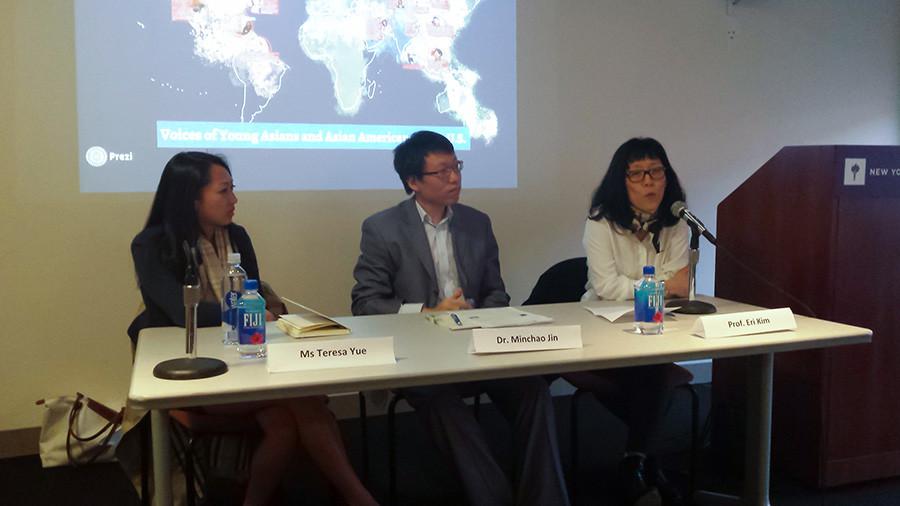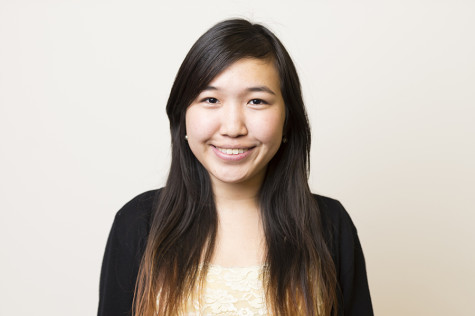Panel brings discrimination against Asians to forefront
Terese Yue (left), Dr. Michao Jin and Professor Eli Kim discuss their experiences living as Asian-Americans to teach the next generation.
April 21, 2015
Three panelists spoke at Voices of Young Asians and Asian Americans in the United States on Tuesday about the often-ignored racial discrimination against Asians. The event was hosted by the Silver School of Social Work and the Chinese Student Support group with the goal of addressing unintended racism in the workplace, racial stereotypes and preservation of self-identity.
Minchao Jin, assistant professor at the Silver School of Social Work, said in order to erase stereotypes and labeling, people need to actively push for mutual understanding by finding similarities.
“People are punished by difference and that’s dangerous,” Jin said. “We have diversity even in the same cultural group, but people refuse to see that.”
Teresa Yue, a tax manager at Ernst and Young, said nonverbal communication can help Asian and Asian American students assimilate better into a predominantly white work environment while maintaining a connection to their heritage.
“Some of the things we do on a normal day-to-day basis, such as body language, posture, vocabulary, things you may say or do that you may not realize, build your image as a person,” Yue said. “In Asian culture bowing shows respect, but in America if you don’t show eye contact that shows disrespect. Self-awareness is key.”
Eri Kim, community programs director of Safe Horizon, the largest victims’ services agency in the United States, spoke about the importance of having discussions about racial awareness in the work environment.
“I think this was a great opportunity because we talk about racism a lot, but as Asians we’re so hush-hush about it,” Kim said. “We wanted to do something to initiate conversation and do something to be more comfortable talking about race.”
Kim added that Asian women could move up the corporate ladder and escape the submissive stereotype that comes with being both Asian and a woman without overcompensating.
“I was taught if you pretend you know things that’s vulgar and not respectful,” Kim said. “I was told to always wait for someone to recognize your talent, but now I know you should be secure in what you know. Be factually based instead of responding emotionally. Prove that ‘I am as smart as you, or maybe smarter.’”
Yue said possessing and expressing a clear personal identity is crucial to defying stereotypes in positive ways.
“Part of what it means to be an Asian-American is being true to my authenticity,” Yue said. “I try not to let them pigeonhole me. I try to diligently and persistently build my personal brand. Get out of your comfort zone. It’s important to be true to yourself — success comes with happiness and happiness comes with success.”
A version of this article appeared in the Wednesday, April 22 print edition. Email Christine Wang at [email protected].

























































































































































